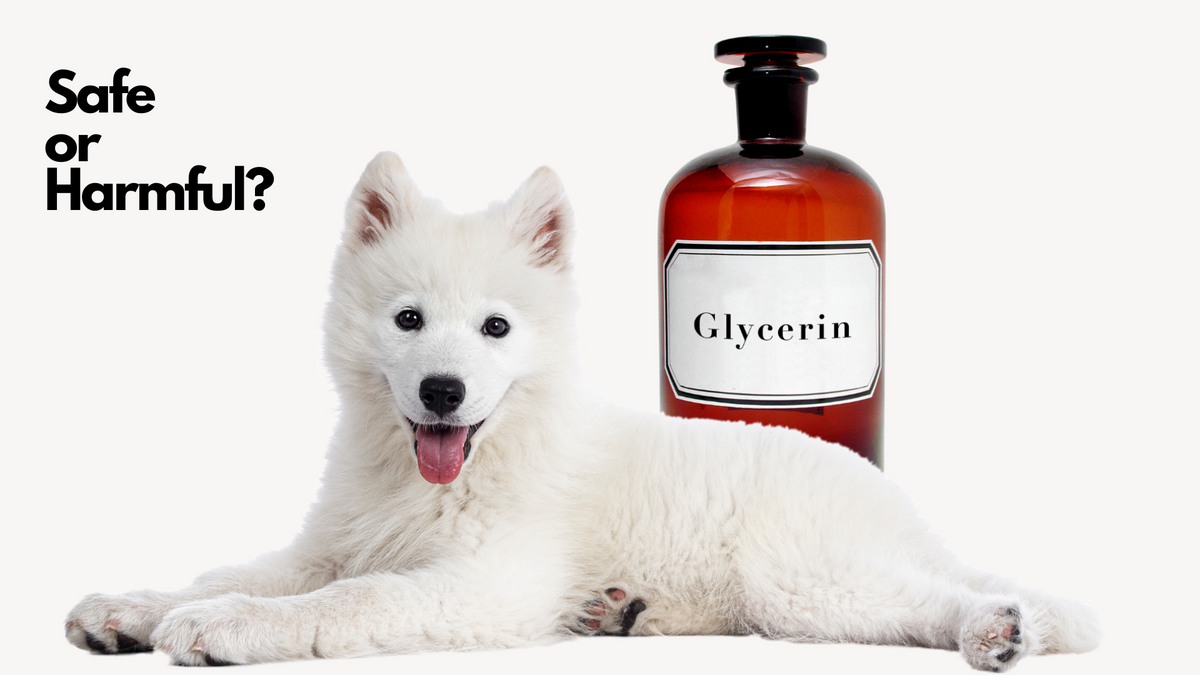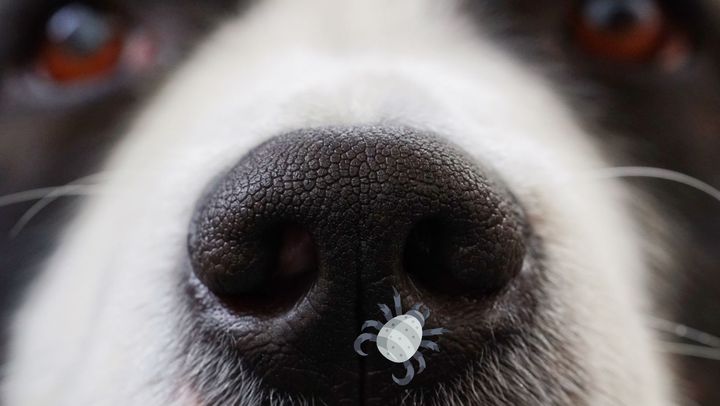Is Glycerin Bad for Dogs? Everything You Must Know
Glycerin is a commonly used ingredient in many pet products, including treats, shampoos, and toothpaste. However, some people are concerned about the potential risks of glycerin for dogs. Can this substance be harmful to your furry friend?

Glycerin is a significant topic that every dog owner should learn more about as we all know that some treats include this substance.
As a dog parent, you want to feed your furry friend the best food possible to ensure its wellbeing.
There are numerous options for foods on the market, each of which has a particular set of ingredients, glycerin included. But are glycerin-based dog treats and food safe for them?
To have a better view of the subject, I researched and discovered that glycerin is indeed a component in many pet foods commercial treat preservatives and additives.
To understand more about this subject, start scrolling.
What is Glycerin?
The simplest definition of glycerin = a liquid that has no color or odor
Complete definition = a colorless, odorless, sickly sweet, and sweet liquid that is often produced by saponifying natural fats and oils (C3H8O3, molecular formula of Glycerin, also known as Glycerol)
What is glycerin used for?
Common use: Pharmaceutical products such as suppositories, cough medicines, anesthetics, and heart medications frequently contain the component glycerin. Vegetable glycerin is also a component of toothpaste because it helps keep the product from drying out or solidifying inside the tube.
🐶 Dogs use: It helps some commercial dog feeds and treats taste better.
Additionally, it keeps food and treats dry, reducing the chances of mold growth.
Can glycerin kill dogs?
Can glycerin make dogs sick?

When is consumed, vegetable glycerin may cause headaches, vomiting and excessive thirst in some dogs.
💩 Does glycerin cause diarrhea in dogs?
Ingesting too much glycerin, whether on its own or through food, can also cause gas and diarrhea since it is a type of sugar alcohol that your dog's body cannot completely digest.
Is glycerin safe for dogs' eyes?

Usually, glycerin is non-toxic and therefore safe to use as a drug, according to the FDA.
If your dog has dry, sore, or inflamed eyes, it's better to be properly diagnosed ASAP by your vet.
One of the components of artificial tears is glycerin. Artificial tears are a lubricating remedy that vets mainly recommended to treat cases of dry eye in dogs. Do only use this medicine at your doctor's prescription, because it can be toxic if applied improperly.
Is glycerin bad for diabetic dogs?
Having sugar alcohols, if your dog consumes a lot of glycerin, can produce a laxative effect, which is not too pleasant.
Although glycerin has no effect on your dog's blood sugar, it is best to avoid giving him too much of it.
🥥 Coconut glycerin is recognized as having no cumulative carbohydrates and as being suitable for diabetics (dogs).
Is coconut glycerin safe for dogs?
Coconut glycerin is used as an ingredient in dog food and treats.
The US Food and Drug Administration has identified coconut glycerin as being safe, meaning it is acceptable for both humans and dogs to use or consume.
Here are some verdicts:
✅ No increase in blood sugar. Coconut glycerin offers the nutritional benefits of carbohydrates without causing an increase in blood sugar. This means that the risk of diabetes in dogs shouldn't be raised by glycerin.
✅ Helps the heart. There are some studies that demonstrate glycerin can improve heart health.
📖 Read the study of the American Journal of Physiology. This study showed that glycerin improved heart metabolism and energy balance, by reducing fatty acid oxidation.
✅ Maintain the health of paws. Keeps the cleanliness of your dog's paws while keeping them moisturized and smooth, preventing peeling, and irritation.
🐾 Can I put glycerin on my dog's paws?
Yes. Actually, coconut glycerin is a life hack for your dog's paws because it helps prevent dry and peeling skin, and also reduces pain.
Is vegetable glycerin safe for dogs' skin?
Yes. Shampoos and other skin care items containing vegetable glycerin are safe for dogs. Your dog's skin can be softer and calmer since it retains moisture.
What happens if a dog eats a glycerin suppository?
A poop situation 💩. Depending on how much of the suppository the dog consumed, it might get diarrhea, but otherwise, it should be alright. You should take your dog to the vet if diarrhea lasts longer than 20 hours or if it begins to throw up.
Will a glycerin suppository hurt a dog? Although these suppositories are typically suggested for kids, they are a secure choice to use if your pup is constipated.
What about glycerin in dog foods and treats?

Pet owners are concerned about glycerin in dog food because of the sweet alcohol contained. As there are poor studies to none about this subject it is better to avoid giving your dog too much food that contains glycerin.
Vegetable Glycerin in Dog food and treats
We know that vegetable glycerin is ok to be used as cosmetics. But regarding the food and treats, the safety of vegetable glycerin for dogs has not been thoroughly studied. This means that neither its safety nor lack thereof is proven.
So, it's better to be safe than sorry and give our dogs other healthy options of foods and treats until some good studies will be released.
Conclusion
Although glycerin is generally permitted for usage in foods, treats, and cosmetics, dog owners are concerned about it due to a lack of study.
If you do decide to use glycerin in your dog's food, medication, and cosmetics, make sure not to overdo it.




Comments ()